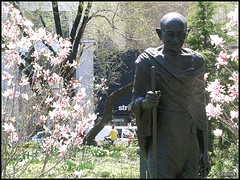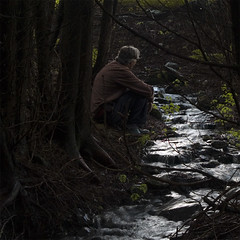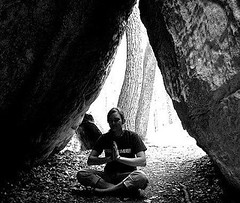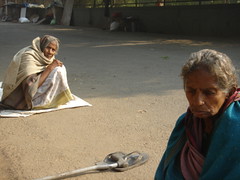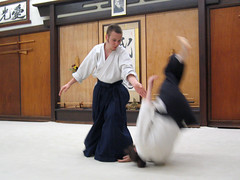Seek freedom and become captive of your desires, seek discipline and find your liberty.
-- Frank Herbert, Dune
Please allow me a quick disclaimer for this essay. Brahmacharya means different things to different people, and in some cases the differences can be palpably intense. In some traditions, Brahmacharya means celibacy, a life of non-sensuality, and in other traditions it can mean the physical control of the body's vital essence. I'm going to leave those interpretations to those traditions and explore the Karmic concept of Brahmacharya as it pertains to right action.
Brahmacharya is the fourth of the five Yamas, or abstentions, taught in the classic Yoga Sutras. Since there are so many differences in the teachings of this concept, it is important to go back to the root idea.
The original Sanskrit word is a combination of two ideas: Brahma denotes the Universal Supreme Entity. It is gender-neutral, referring neither to the feminine Shakti or masculine Shiva. The second word is often seen as Char, or path, and so creates the literal meaning of the Path to God. Another view sees the word Carya, which is essentially "grazing," such as the same way that a cow eats and walks at the same time. In this interpretation, Brahmacharya means living your everyday life and at the same time keeping your mind fixed on God. My favorite translation is simply Divine Conduct.
The ultimate idea of Brahmacharya, then, is to convert all actions into acts of sa'dhana' (spiritual practice or worship). The intention is to stay on the path literally twenty-four hours a day. This encompasses the previous lessons of noninjury, truthfulness and nonstealing -- all outward actions towards others -- and adds an inner dimension.
This internal lesson of Brahmacharya is self-control of the desires and the senses, moderation, and self-discipline. For some, this path to self-control may indeed lead to celibacy. For most, however, Brahmacharya suggests that we should form relationships that foster our understanding of the highest truths. This includes faithfulness in marriage, and a spirit of nurturing between everyone in our lives.
Another very important part of Brahmacharya applies specifically to our modern, media-saturated and Internet-connected realm of experience. This teaching impels us to always view other people as spiritual beings, or at the very least as human beings, rather than as objects of desire. This is the antithesis of our modern pornification and humanity's collective obsession, where women especially are objectified -- and by extension -- dehumanized.
The perspective in Karmacology is, "One who cannot control their desires will become controlled by their desires." This is way we experience the difference between (ego-based) pleasure and (soul-based) Bliss.



